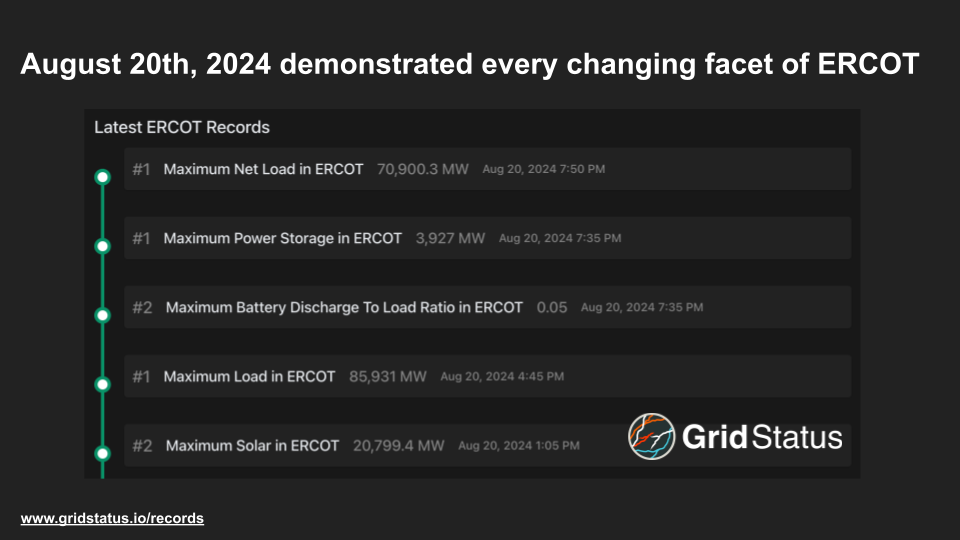Breaking Down a Record-Setting Day in ERCOT
Market highlights and explanations from a day of records in ERCOT.
On August 20th, 2024, The Electric Reliability Council of Texas (ERCOT) saw records for demand, solar generation, net load, and battery discharge alongside prices near the cap; a prime example of how operations in the market are evolving.
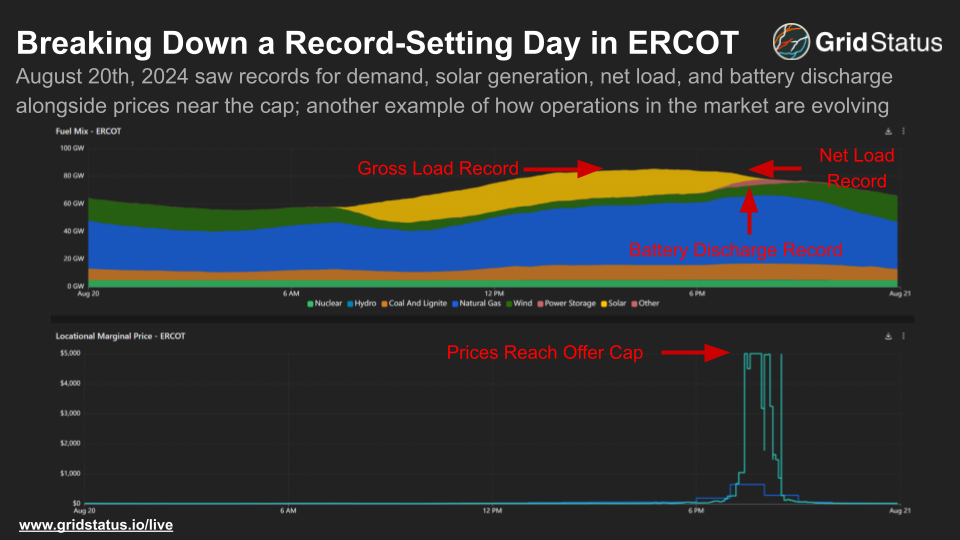
Solar and Demand Were High Throughout the Day
Solar generation was high all day, keeping prices under control even through the record-setting peak load. However, as solar ramped down and the proportion low marginal cost resources on the grid was reduced and prices began to take off.
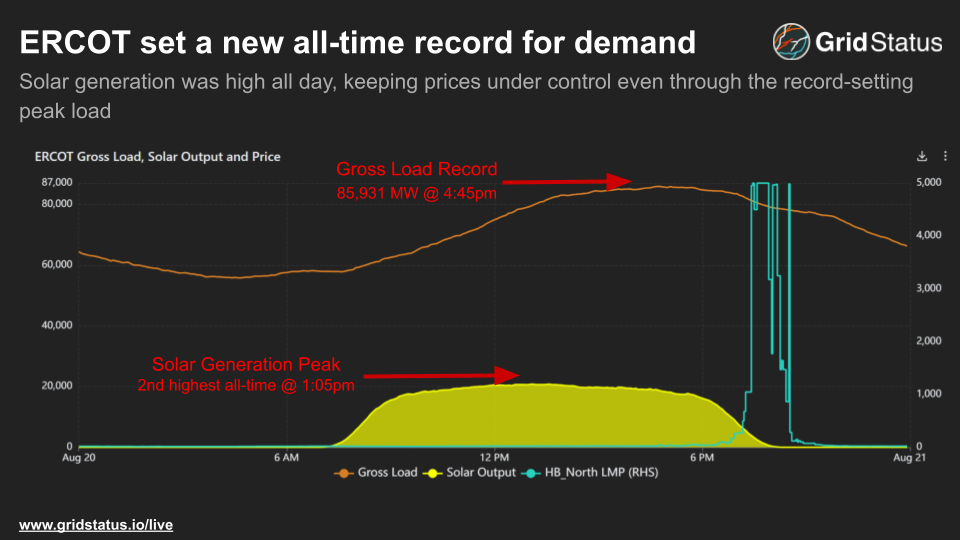
As the resource mix has evolved, high prices correlate more to high net load rather than gross load. Net load is demand that must be met by resources with a higher marginal cost. Because load remained high as the sun set ERCOT began to call on more resources with fuel costs and higher O&M components, eventually reaching the upper echelon of energy prices from peaking units.
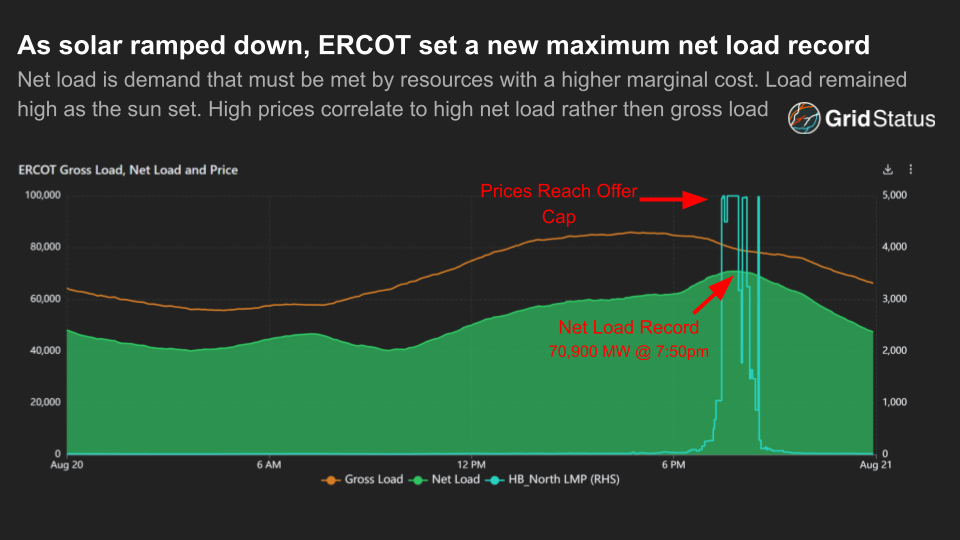
Batteries and Prices Hit Their Peaks
Shattering the previous record, battery discharge peaked 20% higher than the previous record, which was set only the day before. The fulsome deployment of ECRS contributed to juicing battery discharge above and beyond the previous peak.
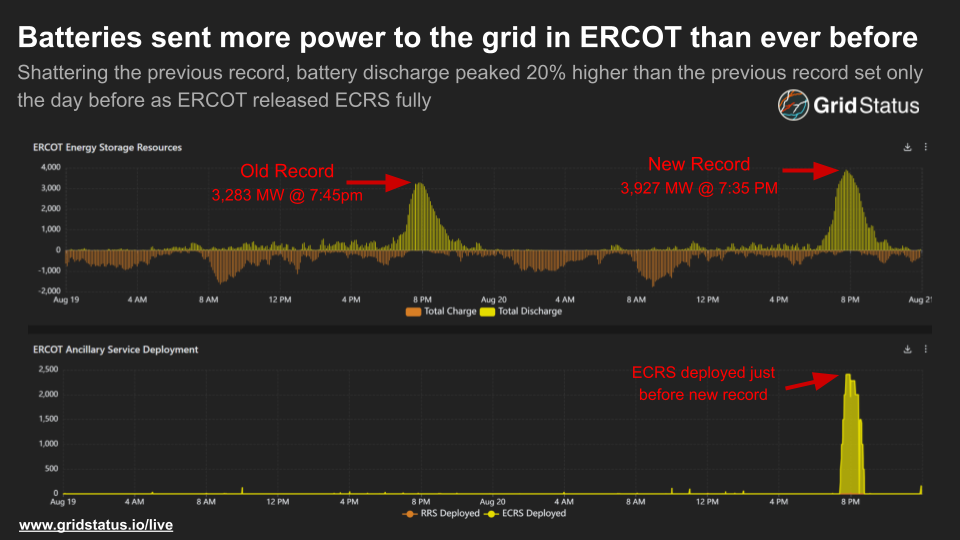
The Hub average fifteen-minute settlement point price (SPP) nearly reached the $5,000 bid cap. ERCOT’s ORDC also contributed to sustained high prices. The ORDC adders were a major contributor to price action in 2021 and 2022, but were greatly reduced in 2023 and have been largely absent so far in 2024 due to changes in the ancillary services market and how ERCOT handles tight situations.
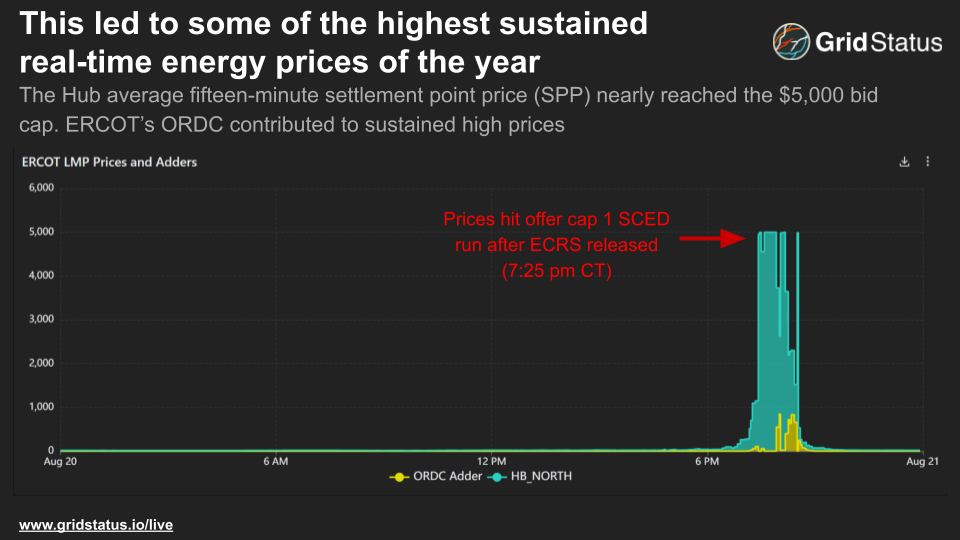
Tight on Capacity Without Conservation
Physical Responsive Capacity (PRC) and capacity available to SCED within 5 minutes declined significantly despite 2,000 MW of extra capacity released from ECRS.
Despite the demand, prices, and ancillary deployments, ERCOT didn't issue a general call for conservation, indicating its operators were confident that the grid had sufficient resources to make it through the net load peak.
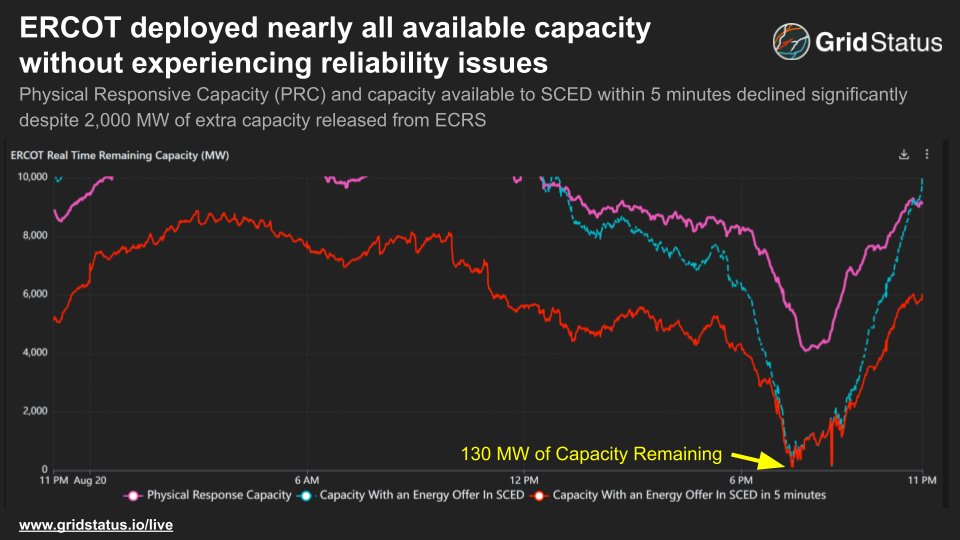
Yesterday set a number of records at or near the top of the ERCOT leaderboards. While we may not see another load record this summer, solar generation could still set new peaks and an unexpected grid event at any time could trigger another coordinated response from batteries.
